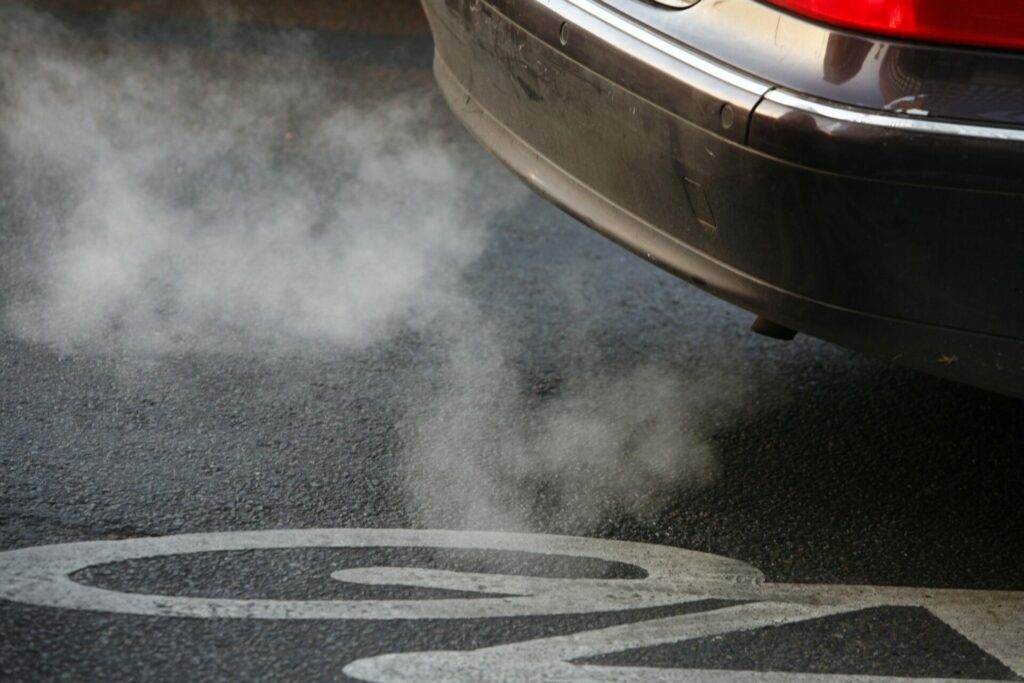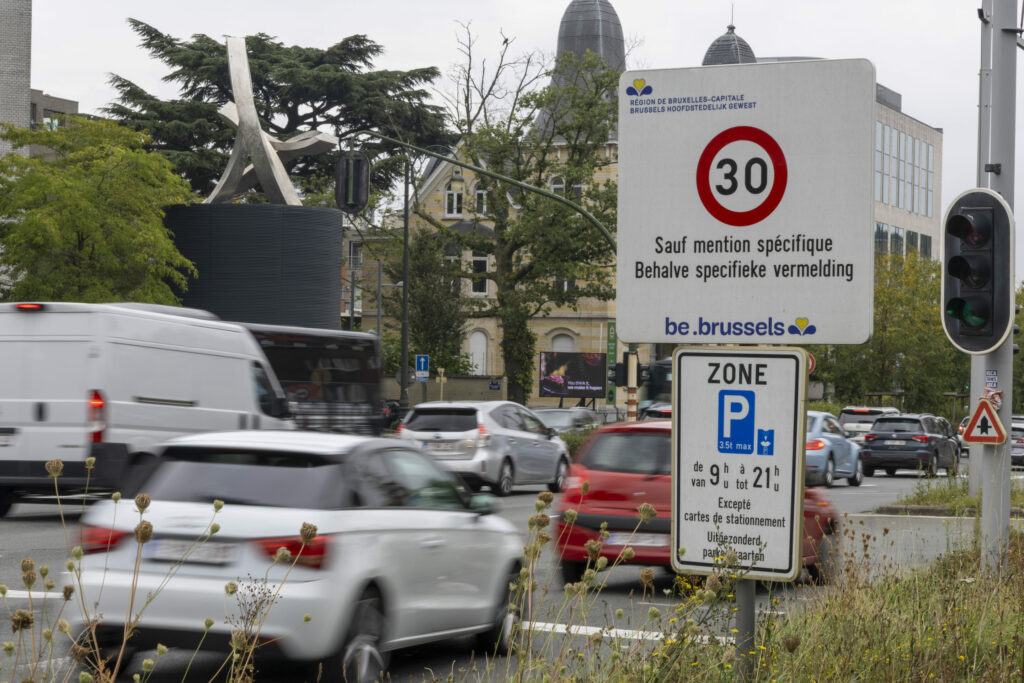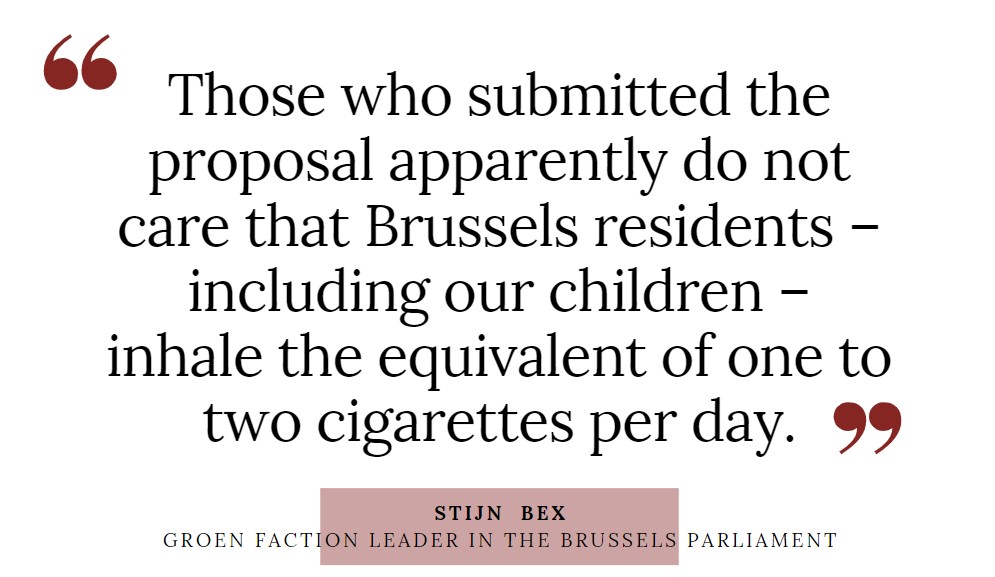The Brussels Parliament's decision to officially delay the stricter Low Emission Zone (LEZ) standards by two years is an "election stunt" by the French-speaking parties and "goes against all principles of good governance," according to the Dutch-speaking greens.
The proposal to postpone the LEZ was unexpectedly put on the table by Brussels Francophone liberal MR, socialist PS and centrist Les Engagés at the end of August, and later co-signed by Dutch-speaking liberals Open VLD. It blew up the regional government formation, as Dutch-speaking formator Elke Van den Brandt (Groen) was not informed beforehand.
"The Brussels Parliament made a particularly bad decision on Friday. An election stunt just before the municipal elections at the expense of the people of Brussels and their health," Stijn Bex, Groen faction leader in the Brussels Parliament, told The Brussels Times.
MR, PS, Les Engagés and Open VLD voted in favour of the proposal, as did Team Fouad Ahidar and Flemish far-right Vlaams Belang. Only the greens (Ecolo and Groen) and regionalist DéFI voted against, while Dutch-speaking socialist Vooruit, rightwing N-VA and Christian Democrat CD&V abstained.
Inhaling two cigarettes per day
In practice, the delay means that the next phase of Brussels' LEZ – which would ban Euro 5 diesel and Euro 2 petrol vehicles from January 2025 – will now only be implemented from 1 January 2027. In the Capital Region, this concerns 35,284 private and 8,512 company vehicles.
While these vehicles make up less than 10% of the car fleet in Brussels, they account for 40% of nitrogen emissions and therefore contribute significantly to the current air pollution.
In the meantime, MR Brussels faction leader David Leisterh stressed the postponement puts the Capital Region in line with Flanders and Wallonia, which have both also decided to give motorists more time to initiate these changes. "This is only a two-year postponement, and there are many levers available to make the energy transition a success and achieve our target of a 47% NO2 reduction by 2030."
Leisterh also argued that as the Region with the highest poverty rate (37.6%), Brussels houses many people with already tight budgets due to the high cost of living. "For them, buying a vehicle that meets the next LEZ standard is a difficult investment to make. This situation is all the more complex for families who depend on their car to get to work, particularly those living in areas with poor public transport links."

Smoke coming out from a car muffler in the streets of Brussels. Credit: Belga/Aude Vanlathem
Additionally, MR argues that Brussels is still a long way from being able to meet its targets for EV charging stations. "So it was neither ideology nor electoral pandering but good management and rationality that led us to take this decision."
According to the current LEZ timeline, however, Diesel cars will still be allowed to drive in Brussels for another six years, and petrol ones even for another 11. "So people should not buy an expensive electric car at all. A more recent used car will do," Groen's Bex said.
Most importantly, the delay of the LEZ is bad for the health of Brussels residents: "Those who submitted the proposal put the interests of several tens of thousands of car owners above the general interest of continuing to work on clean air. They apparently do not care that Brussels residents – including our children – inhale the equivalent of one to two cigarettes per day."
Making preparations
Air quality in the Belgian capital remains insufficient to protect the health of its residents. The Capital Region is currently violating the EU standard for NO2 (40µg/m³) at four of the 13 measurement sites.
At the other nine, Brussels will not meet the future European standard (20µg/m³) for air quality by 2030. More importantly, Brussels environmental organisation BRAL found that the NO2 levels in the air will not decrease sufficiently without banning the most polluting cars from the Capital Region.
"This late decision goes against all principles of good governance. You do not change a measure that has been in place for seven years just three months before its introduction," Bex said. "Many families and companies that had a Euro 5 diesel car have already been prepared and are now wondering where the justice is for those who did make an effort."
For Groen – whose formator Elke Van den Brand was looking for a majority on the Dutch-speaking side of the Brussels Government – the proposal was the proverbial last straw in a long list of attacks and provocations (mainly coming from MR) against green policies, such as the LEZ and the Good Move mobility plan. She resigned as formator in mid-September.
The LEZ is very important to Groen, and the fact that the proposal to delay it had not been discussed in advance, even though negotiations with six potential governing partners (including MR, PS and Les Engagés) were taking place at that time.
"This case has been instrumentalised for the municipal elections. Even when a Parliament takes responsibility in a period of current affairs – which we applaud – there should be consultations with the various parties about what is possible and desirable. None of that happened," Bex said.
Not ruling out participation
He repeated that Groen was against the postponement of the entire regulation, but that it had been willing to go along with a postponement of the levying of fines – which also happened with the previous tightening in 2022. "This would pass the legal test and would also be a signal to those who cannot afford a new car," he said.
Bex praised Les Engagés faction leader in the Brussels Parliament Christophe De Beukelaer, who was still open to a compromise, and N-VA's Cieltje Van Achter, who announced in committee that her faction would abstain from voting in protest against the method used by the French-speaking majority to push through the postponement.
"Groen remains prepared to discuss participation in the next Brussels Government," Bex said. "But only when there is a clear signal from the French-speaking parties (MR-PS-Les Engagés) that they are prepared to take us and our plans for the health and road safety of Brussels residents seriously."


